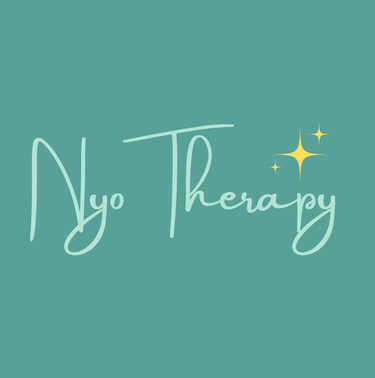Part 1: Play Therapy for our “Littles”: “Isn’t my child too young for therapy?”
A Series on Understanding Early Childhood Therapy
Priscilla Nyo, LMFT, IFECMHS
5/2/20252 min read


Let’s start with this: Don’t think of “talk therapy” for toddlers, instead think of mental health support through play for our littles :)
We know for parents, when little ones are struggling emotionally or behaviorally, it can feel overwhelming—especially when they’re too young to just tell us what’s going on (if only it were that simple!). We can’t forget, it is developmentally appropriate for kids under 5 to have big feelings and “behaviors” however there is still a typical range and areas in which sometimes our little ones (and their caregivers) could use some support.
That’s where therapy for young children can make a big difference.
You might wonder, “Isn’t my child too young for therapy?”. I would say, not at all! In fact, since early childhood is a crucial time for emotional development I would say it might be one of the best times for therapy support. Children under the age of 5 years old are constantly learning how to manage big feelings, navigate relationships, and make sense of the world around them. When something feels off—whether it’s frequent tantrums, anxiety or aggression —therapy can help uncover what your child is trying to communicate, give them healthier ways to cope and support YOU as a parent to navigate the hard days.
No, this isn’t the “talk therapy” you may have experienced as an adult or seen on tv. So, what does therapy look like for young children then?
What Does Therapy Look Like for Young Children?
Therapy for our “littles” looks like PLAY—because play is their language. Through play therapy or other child-focused approaches, therapists (like myself) use therapeutic techniques and strategies to help children express themselves, explore emotions, and learn skills to regulate their behavior.
Secondly, It looks like Parent support or Parent child therapy–because we know parents and children’s well-being are intertwined.
Why Consider Therapy in the Early Years?
Early support builds lifelong skills. Emotional and behavioral patterns begin early. Helping a child and family build coping tools now lays the groundwork for future confidence and resilience.
It strengthens your relationship. Parent involvement is often a key part of therapy for young children. You’ll learn ways to connect with your child, respond effectively, and reduce power struggles.
It can help with transitions. Big changes like starting preschool, welcoming a new sibling, or going through a divorce can be hard for little ones. Therapy provides a safe space to process these changes.
Parents get to learn too. Build your confidence in learning how to attune to and understand your child’s world of play.
It’s not about something being “wrong.” Seeking help doesn’t mean you’ve failed as a parent—it means you’re being proactive and compassionate. It’s not about diagnosing or labeling—it’s about understanding and supporting your child’s needs.
When Should I Consider Therapy?
Frequent, ongoing & intense tantrums
Difficulty with separation or transitions
Aggressive or withdrawn behavior
Sleep or eating issues without medical causes
Experienced a big transition, change or trauma
Delays in emotional, social, or language development
Ongoing anxiety, fears, or tearfulness
Read my blog about Real Reasons Parents Start Therapy With Their Toddlers & Preschoolers -> click here!
If you’re wondering whether therapy might be helpful for your child, trust your instincts and reach out to your pediatrician, a child therapist in your area, or me. :)
If you would like to learn more about services at Nyo Therapy: Early Years Child Therapy click below:
Mobile Play Therapy for "Littles"
Let’s help you and your family THRIVE in the early years!
Stay tuned for Part 2 talking about parent child therapy.
A Series on Understanding Early Childhood Therapy
Part 1
Play Therapy for our “Littles”: “Isn’t my child too young for therapy?”
Nyo Therapy: Early Years Parent & Child Therapy
Priscilla offers child play therapy, parent child therapy, in-home play therapy, and individual therapy for parents with young children. For families in San Diego, CA and virtually throughout California. Priscilla Nyo (Tebelman) offers services in-home, in-office and via tele-health.
Contact Priscilla
priscilla@nyotherapy.com
619-289-8093
© 2025. All rights reserved.
